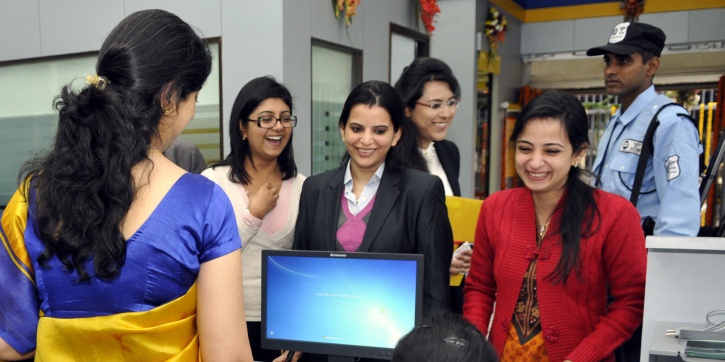All of us are somewhat convinced about the idea that Delhi is the most unsafe place for women to work. Countless rape incidents, innumerable accounts of teasing and so much else in the same vein is too hideous for our minds to cope with.
 With just 24%, India has the world’s lowest rate of female workforce participation. But that’s not all – according to a report by McKinsey Global Institute, India could see as much as a 16% high in its GDP by bringing in more women to work.
With just 24%, India has the world’s lowest rate of female workforce participation. But that’s not all – according to a report by McKinsey Global Institute, India could see as much as a 16% high in its GDP by bringing in more women to work.
A recent report brought by the Centre for Strategic and International Studies (CSIS), a top American think-tank, gave Sikkim the highest possible rating on the chart, which is 40. Delhi, however, scored 8.5 reflecting its poor condition.
The states were ranked on the basis of four main characteristics:
– Legal restrictions on women’s working hours in factories, retail, and the IT industry
– The responsiveness of the state’s criminal justice system to crimes affecting working women, such as sexual harassment
– The number of women workers in the state as a percentage of total workers
– The number of incentives the state’s start-up and industrial policies offer women entrepreneurs.
 Sikkim was way ahead of Delhi and several other states when it came to the aforementioned factors. For starters, it has a very high rate of female workforce participation. There’s lack of restriction on working hours for women and high conviction rates for workforce crimes against women.
Sikkim was way ahead of Delhi and several other states when it came to the aforementioned factors. For starters, it has a very high rate of female workforce participation. There’s lack of restriction on working hours for women and high conviction rates for workforce crimes against women.
Sikkim is followed by Telangana (28.5 points), Puducherry (25.6), Karnataka (24.7), Himachal Pradesh (24. 2), Andhra Pradesh (24.0), Kerala (22.2), Maharashtra (21. 4), Tamil Nadu (21.1) and Chhattisgarh (21.1).
 States like Sikkim, Karnataka, Andra Pradesh and Tamil Nadu have removed all the restrictions on women working late at nights. But Maharashtra just missed the perfect score by a minute difference. It only allows women to work till 10 P.M.
States like Sikkim, Karnataka, Andra Pradesh and Tamil Nadu have removed all the restrictions on women working late at nights. But Maharashtra just missed the perfect score by a minute difference. It only allows women to work till 10 P.M.
In something of a surprise, Delhi came last in this index, due to its relatively low justice and workforce participation scores; its continued formal restrictions on women working at night in a wide range of sectors; and its lack of any incentives for female entrepreneurs in its industrial policies,” the report said.
News Source: India Times

